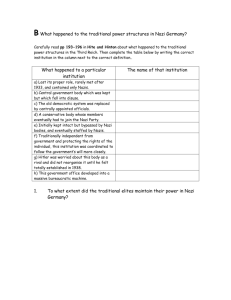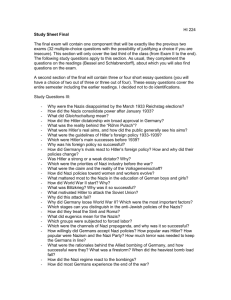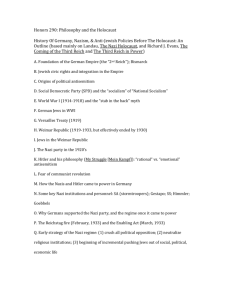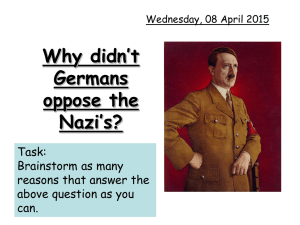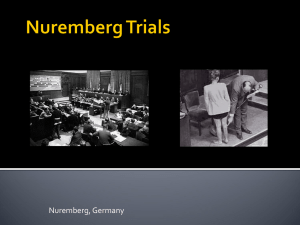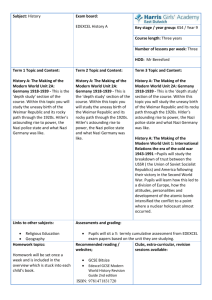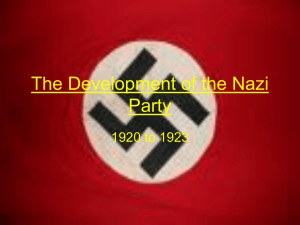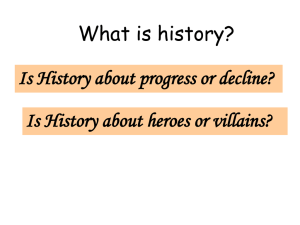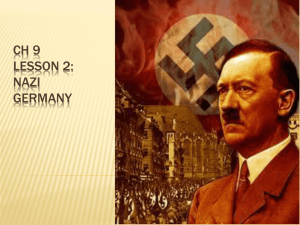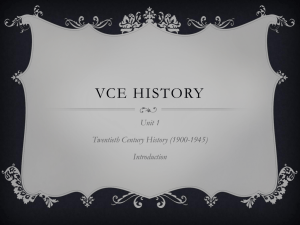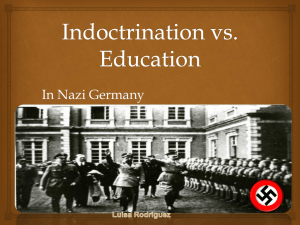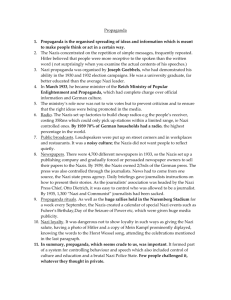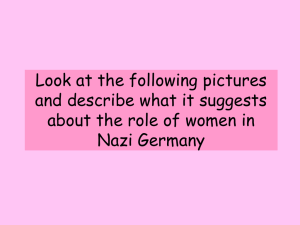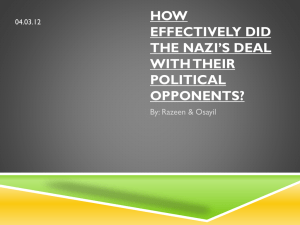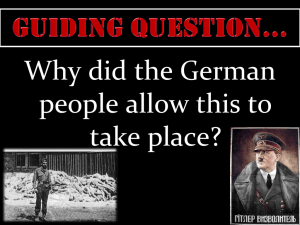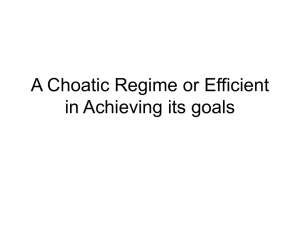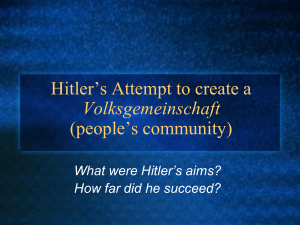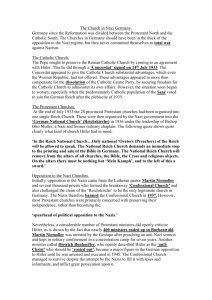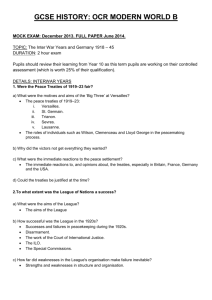Hitler VMS PPT
advertisement
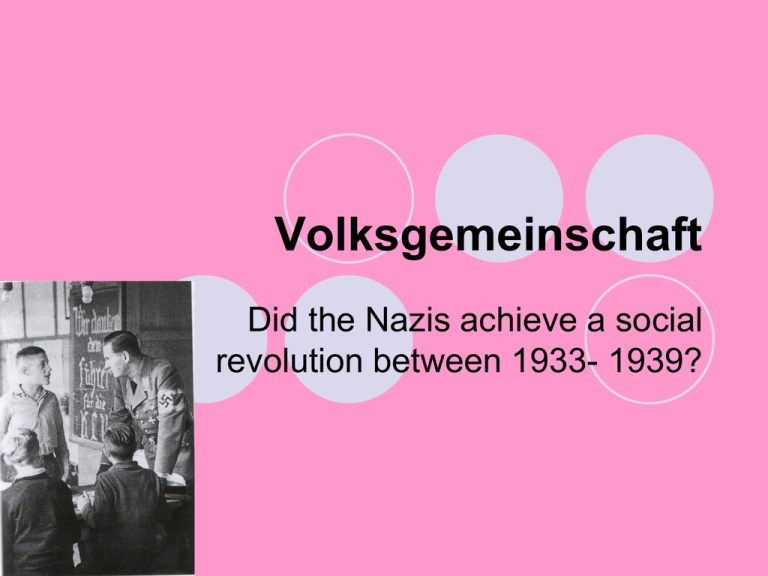
Volksgemeinschaft Did the Nazis achieve a social revolution between 1933- 1939? How far did the Nazis succeed in winning over the hearts and minds of ordinary German citizens? What is meant by Volksgemeinschaft? Hitler aimed to create a ‘national people’s community’ Weltanschauung- shared ideals- a common world view Volksgenossen- Fellow Germans Blut und Boden- Blood and soil Outsiders What problems are there with the concept of Volksgemeinschaft? What do you think Hitler was really trying to achieve? Role of Women ‘One might be tempted to say that the world of women is a smaller world. For her world is her husband, her family, her children and her house’ Kinder, Kirche, Kuche- Children, Church, Kitchen Family as the ‘germ cell of the nation’ State backed motherhood- made an attractive financial proposition How did women fit in with Nazi ideology? Volkisch ideas about role of women – subservient wife, prolific mother, guardian of moral virtue & racial purity Three K’s – Kinder, Küche, Kirche Restrictions – women excluded from judiciary, medicine & civil service; university places limited to 10% Incentives – free loans to newlyweds,, tax rebates, medals Nuremberg Laws, 1935 – banned sexual intercourse between Germans & Jews Lebensborn – impregnation by SS officers Organisations – National Socialist Womanhood; German Women’s Enterprise Interpretations Reactionary- in response to the Weimar trendfull employment, vote, fashion, freedom of women- Nazis picked up on a Depression era reaction Contradictions in Nazi policy- family unit, but Hitler Youth, sterilisation programme, euthanasia programme, Lebensborn programme- birth outside marriage Nazi economic recovery-women stayed in employment Ideology versus economic need- many laws relaxed as demand for workers increased Success? Did women absorb Nazi propaganda? Nazi family values an extreme version of Catholicism Increase in social services for women Unable to reconcile social policy with political,economic and military ambitions No evidence that policies were unpopularsecured the approval - ‘tolerance’ by women Modernism versus traditionalist tendencies within the Third Reich Family used a tool of the totalitarian statereproduction Church Shared values?- family / state / nationalism (Lutheranism) anti- communism Church an obstacle to achieving total control Hitler speaks of a need for ‘Positive Christianity’ Catholic 32% population / Protestant 58%Lutheran / Calvinist Catholic Zentrum / BVP political parties Provincial religion- protestant state based Third Reich and Religion Reich Church- ‘coordination’ of Protestant churches German Christians- ‘racial based’ Christianity (Ludwig Muller) Confessional Church- breakaway from Reich Church- (Niemoller) (Bonhoffer) German Faith Movement- ‘pagan’ Nazi Faith (Alfred Rosenberg) Stages of Nazi Policy towards the Churches Control Weaken Replace Interpretation ‘Only insititution which had both an alternative ideology…and retained organisational autonomy’ Subservience to the state Ensuring the survival of insititution through cooperation- self defence- rather than political oppostion Individuals rather than Institutions opposing the regime Highlights the limits of the Totalitarian State Overall- did Hitler break down the classes? How much had society changed by 1945? Descriptions of life in the 1930s before the outbreak of war (Lutz Niethammer 1986)comments about life - ‘quiet’, ‘good’, ‘normal’ People seem more concerned with employment, economic stability, order and peace. Class structures probably not altered as a result of Nazi rule. ‘Revolution of form, not substance’- Hitler’s aim to deceive the people. VMS a propaganda gimmick. Conclusions continued Social effects were at times contradictory- sometimes modernising/ sometimes reactionary Deep social divisions and discontent existed beneath the propaganda- this was dealt with by repression. If a social revolution was achieved it was as a result of the elimination of people Strongest argument for social revolution is based on the regime’s social destruction- things changed as a result of war- but this was not intentional. Nazi Germany had an impact on society beyond its own existence.
